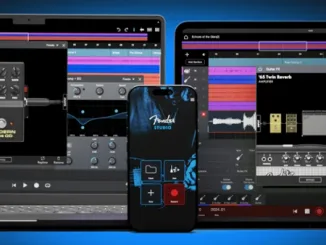
Arm has introduced new tools to aid chipmakers and automakers in the development of future “software-defined” vehicles. Software-defined cars can be reprogrammed for different roles using software after they’ve been delivered to their owners. Arm, founded in Cambridge, England, collaborates with a number of major automotive suppliers and technology companies, including AWS, Continental, Cariad, and others. The characteristics of the autos range from driver-assist safety features to self-driving vehicles. However, they’re all jam-packed with gadgets. Scalable Open Architecture for Embedded Edge (SOAFEE) is a software architecture and open source reference implementation that combines automotive’s real-time and safety concerns with the benefits of a cloud-native approach.
According to Arm VP Chet Babla, modern car features are already causing tremendous software complexity, and a software-defined architecture gives a method to manage this complexity at scale. Software-defined vehicles will also be able to more readily deploy useful applications, services, and capabilities, as well as post-sale updates. This provides [manufacturers], tier 1s, cloud, and software providers with operational business value while also enabling new service-based monetization opportunities. And as customers, they’ve been accustomed to immersive, personalized, and upgradeable digital user experiences and now want the same from our automobiles — this is what a software-defined strategy can enable. As supply chains evolve, manufacturers and tier 1 system integrators are deeply engaged with all automotive stakeholders in redefining the entire technology stack, he added, the automotive industry is at an inflection point.
Arm also announced two new reference hardware platforms that would allow automobile designers to develop and test their designs on high-performance Arm-based CPUs before they are commercialized. Automotive developers today face increased code complexity as vehicle designs and capabilities evolve, necessitating advanced driver assistance systems (ADAS), in-vehicle infotainment systems (IVI), electric powertrains, and self-driving automobiles.
Computing must become more centralized to suit these expanding customer needs, and software is becoming increasingly important. As a result of the changes in how software is built, distributed, and managed, cloud-native development, which is best recognized for driving cost, time, and complexity savings across the cloud infrastructure business, is more suitable to automotive development than ever before, according to Arm.
Automakers and integrators will profit from developed economies and feature scalability throughout their model line-up by adopting a software-defined approach, according to Babla, while also being able to deliver new service-based income streams straight to the consumer post-sale. The automobile sector is dedicated to a software-defined future, and the SOAFEE effort will help to realise that goal. However, delivering a standardized framework that enhances proven cloud-native technologies that perform at scale with the real-time and safety features necessary in automotive applications is critical to meeting the software-defined needs of automobiles soon. This same framework can also benefit other real-time and safety-critical use cases, such as robotics and industrial automation.
SOAFEE is the outcome of a collaboration by automakers, system integrators, and semiconductor, software, and cloud technology leaders to establish a new open standards-based architecture for the software-defined vehicle.
Furthermore, the SOAFEE reference implementation, which is a free open source software version of the architecture specified by a Special Interest Group (SIG) of these leaders, will allow for broad prototyping, workload exploration, and early development. To maximize interoperability and enable a speedier path to functionally safe designs, Arm is collaborating with top commercial solution suppliers. SOAFEE currently expands on previous efforts to integrate cloud ideas such as container orchestration with real-time vehicle functional safety.
The timescale for developing new automobile applications must be as short as possible and as frictionless as possible. It used to take up to five years to bring new automotive technology into the most recent models. SOAFEE’s instant availability will enable cloud-based developers to put their skills to work and contribute to the future of mobility, which is based on Arm technology.
Arm is releasing a new SystemReady-compatible development platform in collaboration with ADLink to help shorten time to market. The platform, which is built on Arm Neoverse-based Ampere Altra cores, will allow workload discovery and development on Arm-based silicon utilising the SOAFEE reference software stack for applications such as cockpit, ADAS, powertrain, and autonomous driving, among others. Both the developer workstation and the robust in-vehicle device are available for preorder, with general release set for Q4 2021.
The AVA Developer Platform is a high-performance, 32-core scalable compute system that can execute autonomous workloads and is designed for lab-based development. It enables programmers to complement high-performance central processor units with accelerator technology (CPUs). The high-performance AVA-AP1 features 80 cores for higher CPU performance and more input-output (IO) capabilities for in-vehicle prototyping and testing. It has a safety processor that allows real-time execution in the vehicle.
Many industries are adopting software-defined functionality, and the combined solution of SOAFEE and the new development platform will assist other applications. These include fields such as medical, manufacturing, and logistics in robotics. Software-defined functionality will enable safe, novel in-vehicle experiences and features that satisfy consumers’ requests and expectations in automotive use cases. Automakers, tier 1s, software suppliers, and cloud service providers will all benefit from new revenue streams and client interaction options.
The efforts have gained broad support from leaders across the supply chain, including Apex.AI, Continental, Green Hills Software, Linaro, Marvell, MIH Consortium, Red Hat, SUSE, Woven Planet, and Zing Robotics, in addition to AWS, ADLink, Ampere, and CARIAD.




